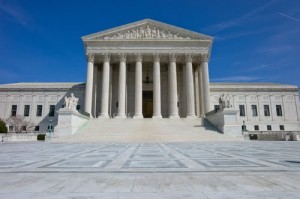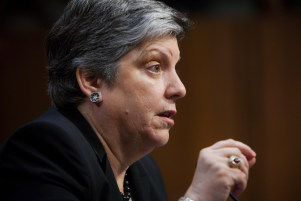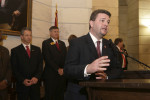 For more than a decade now we have heard that the high-stakes testing obsession in K-12 education that began with the enactment of No Child Left Behind 11 years ago has resulted in high school graduates who don’t think as analytically or as broadly as they should because so much emphasis has been placed on passing standardized tests.
For more than a decade now we have heard that the high-stakes testing obsession in K-12 education that began with the enactment of No Child Left Behind 11 years ago has resulted in high school graduates who don’t think as analytically or as broadly as they should because so much emphasis has been placed on passing standardized tests.
Here, an award-winning high school teacher who just retired, Kenneth Bernstein, warns college professors what they are up against. Bernstein, who lives near Washington, D.C. serves as a peer reviewer for educational journals and publishers, and he is nationally known as the blogger “teacherken.” His e-mail address is
This e-mail address is being protected from spambots. You need JavaScript enabled to view it
. This appeared in Academe, the journal of the American Association of University Professors:
 Unless you can prove you're being surveilled in a program the government keeps secret, you have no right to sue
Unless you can prove you're being surveilled in a program the government keeps secret, you have no right to sue
 Domestic Glance
Domestic Glance A bruised cheek. A broken bone. Verbal battering. A window shattered in an effort to intimidate. The rate of such violence or abuse between husband and wife – or any two intimate partners – has been on the wane in America, falling by a stunning 64 percent between 1994 and 2010.
A bruised cheek. A broken bone. Verbal battering. A window shattered in an effort to intimidate. The rate of such violence or abuse between husband and wife – or any two intimate partners – has been on the wane in America, falling by a stunning 64 percent between 1994 and 2010. A training document released in response to a civil liberties organization's lawsuit and obtained by The Huffington Post reveals that the government considers an "analyst's wisdom" the ultimate arbiter of whether data on American citizens can be classified as "terrorist information" and retained forever.
A training document released in response to a civil liberties organization's lawsuit and obtained by The Huffington Post reveals that the government considers an "analyst's wisdom" the ultimate arbiter of whether data on American citizens can be classified as "terrorist information" and retained forever. For more than a decade now we have heard that the high-stakes testing obsession in K-12 education that began with the enactment of No Child Left Behind 11 years ago has resulted in high school graduates who don’t think as analytically or as broadly as they should because so much emphasis has been placed on passing standardized tests.
For more than a decade now we have heard that the high-stakes testing obsession in K-12 education that began with the enactment of No Child Left Behind 11 years ago has resulted in high school graduates who don’t think as analytically or as broadly as they should because so much emphasis has been placed on passing standardized tests. An Arkansas lawmaker said Tuesday that he would ease his proposed ban on most abortions in the state so the procedure could still be performed until a heartbeat is detected using an abdominal ultrasound.
An Arkansas lawmaker said Tuesday that he would ease his proposed ban on most abortions in the state so the procedure could still be performed until a heartbeat is detected using an abdominal ultrasound. Sex abuse victims' advocates are criticizing the Archdiocese of Newark, N.J., for promoting a priest who allegedly admitted to groping a teenage boy.
Sex abuse victims' advocates are criticizing the Archdiocese of Newark, N.J., for promoting a priest who allegedly admitted to groping a teenage boy.






























